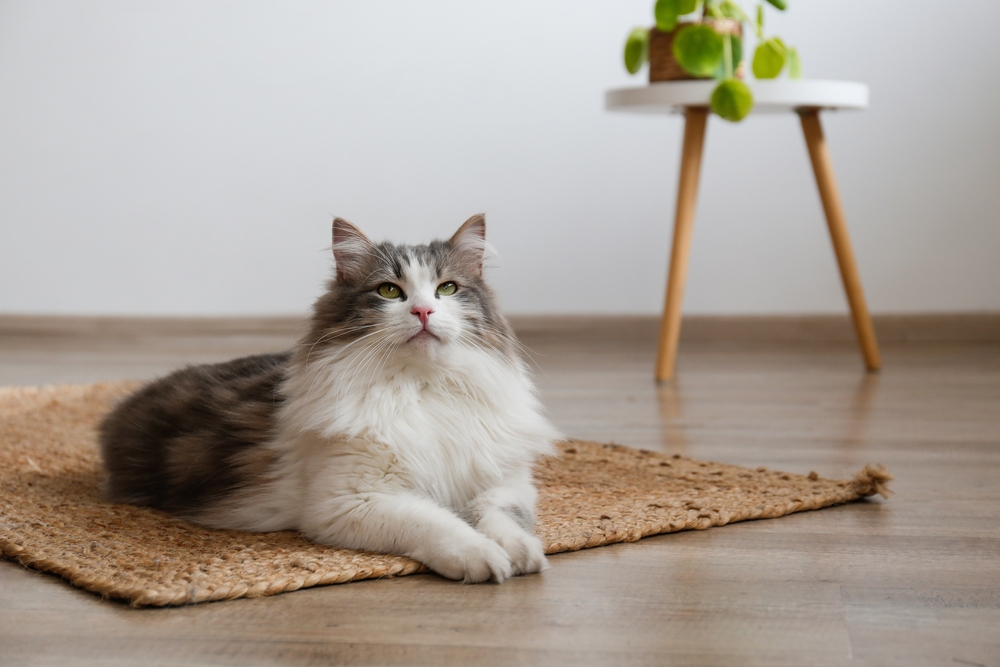As your pet ages, their health care needs may change, but age itself is not a disease, and your dog or cat can continue to enjoy a good quality of life throughout their golden years. Our Star of Texas Veterinary Hospital team provides high-quality care for each patient through each of their life’s stages, and we experience the utmost joy watching your senior pet thrive. Pets’ health care needs change with age, and our team is here to help your senior pet remain active and healthy during this chapter of their life. You likely wish your pet could tell you what they need, but rest assured our veterinary team members are experts at decoding your pet’s needs. To learn what your senior pet wants you to know about their changing needs so you can support them as they age, read our senior pet health care guide.
I should have at least two senior pet wellness exams per year
Veterinary visits may not be my idea of a good time, but I feel safe and loved visiting my friends at Star of Texas Veterinary Hospital. The team has been caring for me since the day you brought me home, ensuring I remain healthy and happy, and I trust them to continue supporting me for the rest of my days. Regular wellness exams have always been important for my health and wellbeing, and now that I’m getting older, they are absolutely essential. Because pets age much more quickly than people, we have a high risk for numerous health issues, including kidney and liver failure, cancer, diabetes, thyroid dysfunction, endocrine disorders, and cognitive dysfunction. My health status requires extra attention, and I should have a veterinary examination at least every six months. These biannual checkups help my veterinarian detect and address potential health issues at an early, manageable stage, which dramatically improves my outcomes and quality of life.
I am prone to weight gain as a senior pet
As I age, my metabolic rate will likely slow, and I will be prone to weight gain. While I know I look fabulous at any weight, excess pounds cause extra stress on my joints, which increases wear and tear, potentially leading to painful osteoarthritis and reduced mobility. You can help me maintain a healthy weight by following these tips:
- Assess my body condition — A pet’s body condition score (BCS) is similar to a human’s body mass index (BMI) and provides a more accurate assessment of my overall body fat than a number on the scale.
- Portion my meals appropriately — Rather than feeding me a random amount of kibble, appropriately measure portioned meals. Calculate the number of calories I need each day, divide that amount into two or three meals, and use a measuring cup to ensure you feed me an accurate portion.
- Limit treats — I can’t believe I’m saying this, but treats should account for no more than 10% of my daily caloric intake.
- Keep me active — Regular daily exercise is essential to managing my weight, and I love the opportunity to spend time with you. Ask my veterinarian to recommend appropriate exercises for my age and condition, and commit to exercising with me daily.
Enrichment helps keep my senior pet mind sharp
I need more than physical exercise to stay healthy. My mind needs stimulation too. As I age, I can suffer from declining cognitive function, and I need regular mental stimulation to stay sharp. You can help me exercise my noggin by following these tips:
- Teaching me a new trick or command
- Feeding me using a puzzle feeder
- Hiding treats throughout our home for me to find
- Exploring a new neighborhood or nature trail with me
- Providing interactive toys, and playing with me daily
I may need some senior pet home modifications

Many older pets develop arthritis, a degenerative joint condition that causes stiffness, decreased mobility, and discomfort. If I develop arthritis, I can still enjoy a happy and fulfilling life when you provide the proper care and pain management, along with some simple home modifications. To help ease my painful joints, increase my mobility, and improve my quality of life, follow these tips:
- Rubber mats — Place carpet runners, rugs, or rubber mats on slick floors to help me maintain my balance and avoid slipping.
- Ramps or steps — Prevent me from struggling to jump by placing ramps or steps next to furniture or leading to the outdoors.
- Firm bedding — Firm orthopedic bedding better supports my aching joints.
- Plugging in nightlights — I may experience vision loss. To help me navigate the house at night, plug in nightlights in dark hallways and rooms.
- Elevated bowls — Arthritis can cause elbow and shoulder pain, and placing my food and water bowls in an elevated stand makes my mealtimes more comfortable.
Age really is just a number, and with high-quality veterinary care, I can continue to enjoy a good quality of life for many years to come. Schedule my next biannual senior wellness exam with my friends at Star of Texas Veterinary Hospital.







